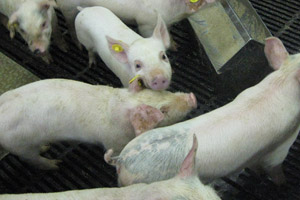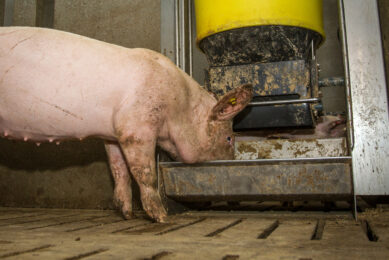Phytase – major benefits for pigs

Despite widespread use in monogastric diets throughout the world, the value currently obtained from phytase enzymes is just a fraction of the potential benefits available, claims Dr Rob ten Doeschate, AB Vista’s technical director for EMEA.
“The use of phytase enzymes to reduce formulation costs by releasing minerals (calcium, phosphorous and sodium) has produced significant economic benefits, particularly for the feed manufacturing sector,” he highlights. “But by eliminating the anti-nutrient effects of phytate through superdosing, the latest generation of phytases can deliver a much greater level of value.”
Estimates put the total cost to the poultry industry of the anti-nutritional effects of phytate at close to €2 billion/year in lost performance. To date, phytate has been linked to reduced calcium, zinc, magnesium, sodium and copper digestibility, plus reducing the digestibility of amino acids by 3-16%, depending on the makeup of the diet.
“The latest generation of phytases are capable of both delivering higher levels of phosphorus release per unit of activity and destroying a higher percentage of the phytate in the diet,” Dr ten Doeschate continues. “This makes superdosing – defined as the use of high doses of phytase to quickly eliminate phytate in the anterior digestive tract – a valuable option for all commercial pig and poultry producers, and is perhaps the most exciting development the sector has seen in recent years.
“Not all phytases are suitable for superdosing, but those that are, for example Quantum Blue which has been specifically developed for phytate destruction, have been shown to significantly increase feed intake, nutrient utilisation and animal performance. The result is a potential 4 point improvement in feed conversion efficiency, which for many would be worth €4-6/tonne of feed.”











